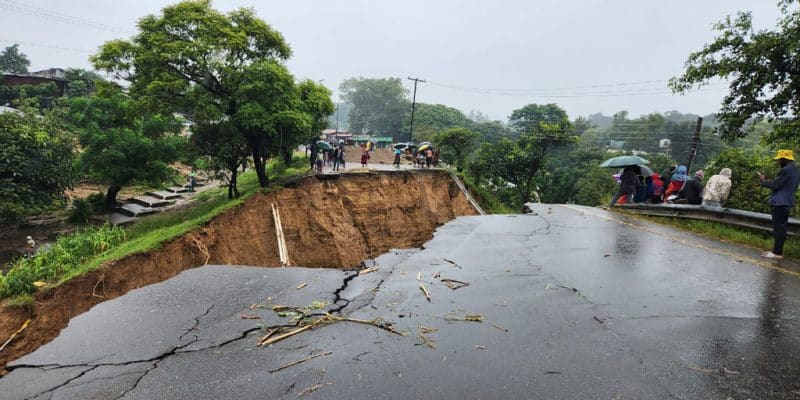While the cholera epidemic was its main concern until now, Malawi must now deal with the heavy human and environmental consequences of Cyclone Freddy, which devastated nearly 15 districts in its southern part. In response to this impasse, the United Nations (UN) is seeking to mobilize $70.4 million over the next few weeks to build resilience among Malawians.
In the aftermath of Cyclone Freddy, which swept through East Africa, Malawi needs $70.4 million to rebuild its natural assets and strengthen the food security of its people. This amount, estimated by the United Nations Office for the Coordination of Humanitarian Affairs (OCHA), will enable the Malawian government to implement sustainable projects that will strengthen the climate resilience of the main cities, starting with the capital Lilongwe and the township of Cilobwe, where 85 people were killed in a landslide.
“Freddy caused death, destruction, displacement and devastation on a terrifying scale at a time when Malawians were already vulnerable to climate shocks. To date, the needs are truly enormous, especially in the districts of Nsanje and Phalombe (in the south of the country) where several roads have been cut off,” explains Rebecca Adda-Dontoh, the United Nations (UN) resident coordinator in Malawi.
The funds to be mobilized by the UN from its international partners will help boost agricultural productivity and public health, particularly in rural areas where storms have ravaged plantations and destroyed water supply facilities. A total of 1.1 million people, including 88,000 internally displaced persons, are targeted by this initiative, which focuses on Sustainable Development Goals 2 and 6 (SDGs 2 and 6) on food security, water and sanitation, respectively.
Read also-MALAWI: Peace Parks Rehabilitates Nyika Park and Vwaza Game Reserve with KfW
In recent years, Malawi has become a target for extreme weather events. In 2022, Tropical Storm Gombe, which first hit Mozambique, also caused heavy rains, resulting in flooding, particularly in Liwonde National Park, where the survival of several animal and plant species was compromised. Earlier in 2021, Cyclone Idai with winds of up to 200 km/h killed at least 60 Malawians. It is in this context that the African Development Bank (AfDB) has set up a $100 million Emergency Recovery Fund in East Africa.
Benoit-Ivan Wansi





